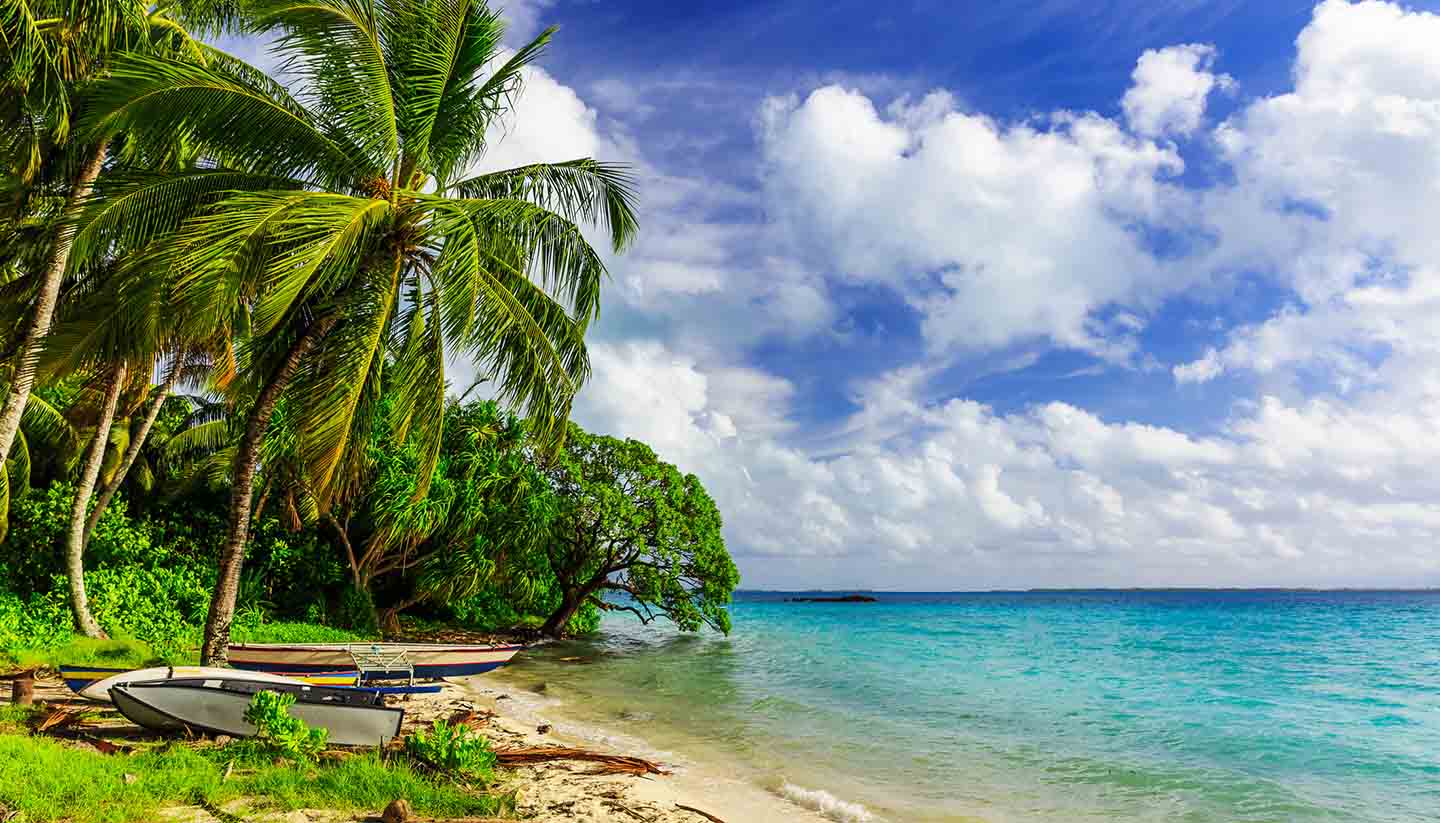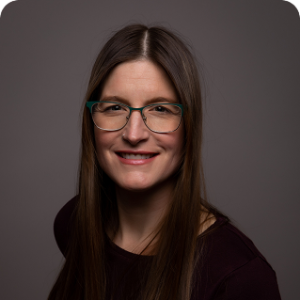
After college, I joined the peace corps. I wish I could say I joined the Peace Corps out of an autistic urge to help others, one that I felt deep within my heart but that isn’t true. I joined because I wanted to travel and didn’t have the money to. I joined because I wanted to polish my resume for graduate school and I joined because I knew, somewhere deep down, that I needed to change but I didn’t know how or why. I did have a sense I needed to be far away from my environment so during the last year of college at the University of Delaware I met with my Peace Corps recruiter and told her I would like to go far away. She recommended the South Pacific. Sadly, I didn’t even know where that was. “Sure,” I said and five months after graduating from college with a BA in psychology, I went to the Republic of Kiribati.
This was back in 2002 before it was mandatory that everyone have a functional website. About 6 weeks before I left, I received a large package all about the Republic of Kiribati. I remember reading a pamphlet about “cultural isolation.” I read it with interest and tried to take it in but just like I could never understand what walking on the moon was like or at the time, what giving birth to a child was like, I couldn’t truly understand. I took in the words but without an experience of “cultural isolation” I could not understand, that is, until I lived it.
I may not have known what cultural isolation was while sitting at my parents kitchen table in upstate NY with raggedy looking white girl dreadlocks reading a pamphlet, but I most definitely knew what it was less than one year later when I found myself on the small 8-mile long island of Beru, one of the most Southern islands in the Gilbert Group in Kiribati. I was one of two Peace Corps volunteers on the island. Most people on this outer island did not speak English. I had no electricity, no running water, no creature comforts, no internet, no TV, no movies (minus the monthly village C movie shown using a generator that came from overseas usually dubbed in South Korean). There was no telephone and no ability to contact the outside world other than very unreliable snail mail. There was only one plane a week and it came in and left on a Monday. I only saw the other Peace Corps Volunteers 1 to 4 times a month. He lived in a different village and because he was a single man and I was a single woman, we could not socialize easily, so we mostly didn’t.
There is an entire book in me about what the Republic of Kiribati and its people gave me. The experience did not just begin my journey of awakening, it catapulted me! That will have to wait another day.
Needless to say, I was “culturally isolated” and I had absolutely no preparation for the immense loneliness I would feel continuously, especially in the first year. I didn’t know the language in the beginning, I didn’t have my favorite food, I was hot, I was not very productive and I was lonely.
One of the first of many miracles that happened while I was there came in the form of touch. Because of its remote nature and because it was mostly isolated from the outside world, there were no real hospitals on the island. There was a very small clinic with very few supplies. Therefore, when people got sick, they would be looked after by the village. In my case, I was a special guest to the island and I-Kiribatis’ treated their guests like gold. Therefore, when I got sick, everyone knew and it was common for up to 3 women to show up at my door with food and other things to aid in my recovery. When I got a headache, a woman would massage my head. When I had a stomach ache, a woman would massage my stomach. I couldn’t really say no even though I wanted to in the beginning. “I don’t want this stranger touching me,” I would think.
In Kiribati culture, it is considered rude to say no to almost everything – food or drink when it is offered, help when it is offered, an invitation for a 7-day long party, you name it. So, because I wanted to be culturally appropriate, I accepted their offerings to care for me. What blew my mind, the first of many things during that time, was how they would “work on me” for sometimes hours and when they were finished, they never asked for payment. I sometimes would try to offer them something and they would wave me by. I asked sometimers why they helped me so much and they would always say so easily, “because you are sick,” and they would always say it with a silent “duh” at the end of it, like why would I ask such a silly question – does the ocean have waves?
Here is the funny thing, I was so shut down that I didn’t even realize how desperately lonely I was, I only realized I needed more touch and because I was certainly not willing at the time to be vulnerable and out myself as being lonely and needing touch, the illnesses came in handy (and there was a lot of them in the first 9 months due to the water quality and my sensitive, Western GI tract). I was too closed off to notice my emotional needs so instead my physical needs were the gateway in.
As awkward as it was to receive all of this TLC from strangers, it helped more than I could even comprehend at the time. It helped me feel connected, less lonely, gave me a sense of belonging and a connection to this very different island culture. It was my first introduction to healing!
Still, it never occurred to me then that I would be doing something similar. I was way too arrogant for that. I had a plan, I was going to use this experience to get into a good graduate school, get my PHD in clinical psychology and then eventually become a college professor and published author. I was going to marry my best friend and as soon as I was finished with my degrees I’d have a couple of children and voila, my life would be perfect! I would have “become a somebody” and lived happily ever after, of course.
The long and the short of it is that I began awakening. I began to feel and see clearly for the first time in my life. Prior to this experience, I was always distracted. Whenever I felt a difficult emotion there was always someone to “hang out” with, alway a movie to watch, always a favorite coping strategy to numb with (my favorites before was nicotine and alcohol). I never had to feel, my culture didn’t demand it of me. It only demanded that I “be a someone” but never actually learn how to “be.”
When I was with these islanders, they were peaceful. They had nothing to do and nowhere to go. They fished a little, took care of the household chores, played and cared for the children, repaired the roof when it needed to be repaired, and spent the rest of their time with one another. They had to care for their neighbors they didn’t have the luxury not to! Even though most villagers spent about $5 a week and often never knew where their next meal was going to come from, they were happy, peaceful, calm and in contrast, I was not!
I was the one desperate for touch and desperately lonely, I was the one either always thinking about the future and skimming for my desires or the past, missing my friends, family and creature comforts. I was the one often (sadly) thinking about these islanders as backwards. I was almost never in the moment or peaceful. I was so stuck in my spinning, monkey mind, it took me nearly a year and many, many experiences to even begin to see that the only backwards one on this island was me. I was the one riddled with anxiety and judgment and could not sit still and just “be.”
There was a great deal the culture lacked. They lacked reliable mail and transportation, they lack financial abundance, many never made it past the 4th grade and few had all of their teeth in adulthood but what they had was priceless – they had presences, unadulterated presence and the ability to be with one another without any hidden agenda or ulterior motive. I didn’t have that, not even a little bit and finally, after some time, I actually wanted it.
I am convinced that had I not been living among such peaceful and present people, in a place void of noise pollution, sound pollution, attractions, distractions, stuff and marketing to my frail insecurities, I never would have seen it at all! Kiribati and the Kiribati people I owe my life to for they were the beginning of me actually having a life at all.
Fast forward to coming home. I had made some progress on my healing journey and most importantly realized that life was not in “being a somebody” but in actually connecting with others and being of service to them. I didn’t have a clue as to how I would do this, but I was certain this was the “true” way to live. Coming home was much, much more difficult than going. Most of my friends treated me like I had gone on an extended vacation, “so how was it?” (said in a tone similar to “what’s for dinner”) How was it? HOW WAS IT?
What should I say? My whole life is different now. I have no desire to “be a somebody” anymore. All I want to do is cry because I crave the simplicity of those non-judgmental, never-in-a-hurry, missing-teethed islanders to my “sophisticated” college graduate self-centered, self-important friends that were on their way to “being a somebody.” I didn’t know what to do, I cried alot.
I once cried myself to sleep back at my parents house wondering what I was going to do next because I most definitely no longer wanted to be a college professor. I woke up suddenly in the middle of the night with a thought in my mind, “Go to massage school.” What?!?!?! “That’s not sexy, that’s not great, I don’t want to massage butts for a living. What?!?” is what I thought. Yet, it felt true, because even though I had lots and lots more healing work to do, my time on the island had thawed my shut down heart enough to know an authentic deep feeling of guidance when it was upon me. So, I did!
Chārutā Cubela, Licensed Massage Therapist
Owner of Self-Transformations Massage
Specializing in Therapeutic Barefoot, Myofascial Release, Deep Tissue & Trigger Point Therapy

